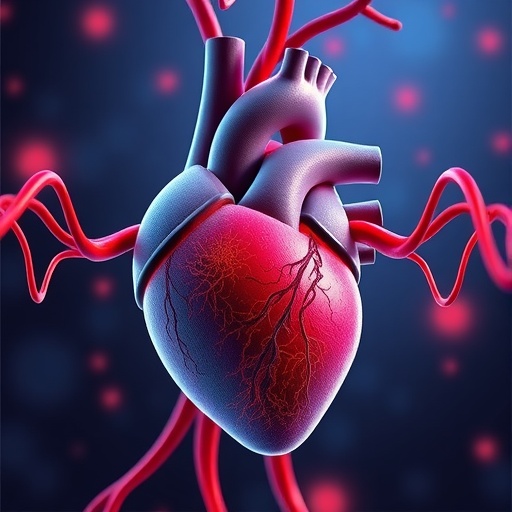Heart failure (HF) represents one of the most pressing cardiovascular challenges worldwide, with its troubling prevalence on the rise. The increased incidence is largely attributable to an ageing global population, coupled with the alarming increase in obesity and metabolic disorders. These factors have altered the fundamental pathophysiological landscape of HF, leading to significant ramifications for both patient management and treatment strategies. The emergence of heart failure as a leading cause of morbidity and mortality underscores the urgent need for deeper insights into its underlying mechanisms.
At the heart of this complex condition lies the critical alteration in cardiac energy metabolism, which plays a pivotal role in influencing both the severity and type of heart failure. Energy deficit becomes an undeniable contributor, as compromised mitochondrial function and disrupted excitation–contraction coupling emerge as hallmarks of heart failure pathology. Mechanistically, these disruptions not only affect the myocardial contractility but also contribute to an overall inefficient energy utilization within the cardiac tissues, exacerbating the heart’s inability to meet physiological demands.
The phenomenon of mechano-energetic uncoupling has garnered considerable attention as researchers strive to elucidate its intricate relationship with cardiac mechanics and mitochondrial energetics. In heart failure with reduced ejection fraction (HFrEF), the defects observed in excitation-contraction coupling serve as crucial drivers of this uncoupling. Disrupted signaling pathways and calcium handling deficits render the myocardial cells less responsive to stimuli, resulting in diminished contractile performance. This disruption initiates a vicious cycle of energy depletion, further impairing the heart’s contracting ability.
Conversely, heart failure with preserved ejection fraction (HFpEF) showcases a different yet no less concerning scenario. Here, the interplay of increased preload and afterload—often due to obesity, hypertension, and age-related vascular stiffness—creates an augmented mechanical workload. Strikingly, the mitochondrial tricarboxylic acid cycle activity fails to keep pace with this increased demand for ATP, which is crucial for contractility and cellular function. The result is an incongruous state where the energy supply is grossly inadequate to match the rising mechanical stress, subsequently propelling the heart into dysfunction.
A common thread linking both forms of heart failure is the detrimental role of oxidative stress. With a depletion in antioxidative capacity, the production of reactive oxygen species escalates, promoting maladadaptive cardiac remodeling and dysfunction. This oxidative stress exacerbates contractile dysfunction and contributes to a deteriorating cycle where cardiac adaptations become maladaptive, ultimately paving the way for progressive heart failure.
In an effort to combat these mechanistic challenges, a plethora of both established and emerging therapeutic strategies are currently being explored. Many of these treatments specifically target the mechano-energetic uncoupling that underpins heart failure progression. By enhancing mitochondrial function or improving energy supply to the myocardium, these treatments may not only alleviate symptoms but also reverse or halt the pathological remodeling processes that characterize heart failure.
The intricate dynamics between mechanical strain and energy production illuminate why a concerted focus on these aspects of cardiac physiology is essential. Understanding the nuances of this mechano-energetic interplay may unlock novel therapeutic avenues, which could significantly impact treatment paradigms for heart failure. Future research focusing on the cellular and molecular underpinnings of this coupling could herald much-needed advancements in the ongoing battle against heart failure.
Furthermore, exciting developments in gene therapy and regenerative medicine may offer breakthroughs in correcting underlying bioenergetic deficits. These strategies could complement pharmaceutical interventions and pave the way for comprehensive, multifaceted treatment approaches. Hence, there exists an optimistic outlook that an integrated understanding of cardiac mechanics and energetics may ultimately shift the paradigm of heart failure management.
As academia continues to unravel the complexities surrounding heart failure, collaborative efforts involving clinicians and researchers are paramount. By fostering synergy between disciplines, the field can better tackle the challenge of heart failure in an ageing population, where the intersection of metabolic disorders plays an increasingly influential role.
The dialogue around heart failure must also include public health initiatives that address the root causes of obesity and metabolic disorders. By tackling these issues at the population level, outcomes for individuals affected by heart failure may significantly improve. Engaging the public in lifestyle modifications, nutrition education, and preventive healthcare can serve as a proactive countermeasure to this looming health crisis.
In conclusion, the fight against heart failure requires a holistic understanding of its mechanisms, grounding future research, and treatment in the intricate duality of mechanobiology and bioenergetics. With a collaborative and comprehensive approach, the persistent burden of heart failure may someday be alleviated, culminating in improved quality of life and longevity for millions affected worldwide.
In this evolutionary context, it becomes increasingly evident that the combination of innovative therapeutic strategies guided by novel research into mechano-energetic interactions may herald a new dawn for cardiovascular health. The journey toward reinvigorating heart function and restoring quality of life for those living with heart failure continues, guided by an unwavering commitment to scientific exploration and patient-centered care.
Subject of Research: Heart Failure Mechanisms and Treatment
Article Title: Mechano-energetic uncoupling in heart failure.
Article References:
Aksentijevic, D., Sedej, S., Fauconnier, J. et al. Mechano-energetic uncoupling in heart failure.
Nat Rev Cardiol 22, 773–797 (2025). https://doi.org/10.1038/s41569-025-01167-6
Image Credits: AI Generated
DOI:
Keywords: Heart Failure, Mitochondrial Function, Oxidative Stress, Mechano-energetics, Cardiac Mechanics, Therapeutic Strategies.




